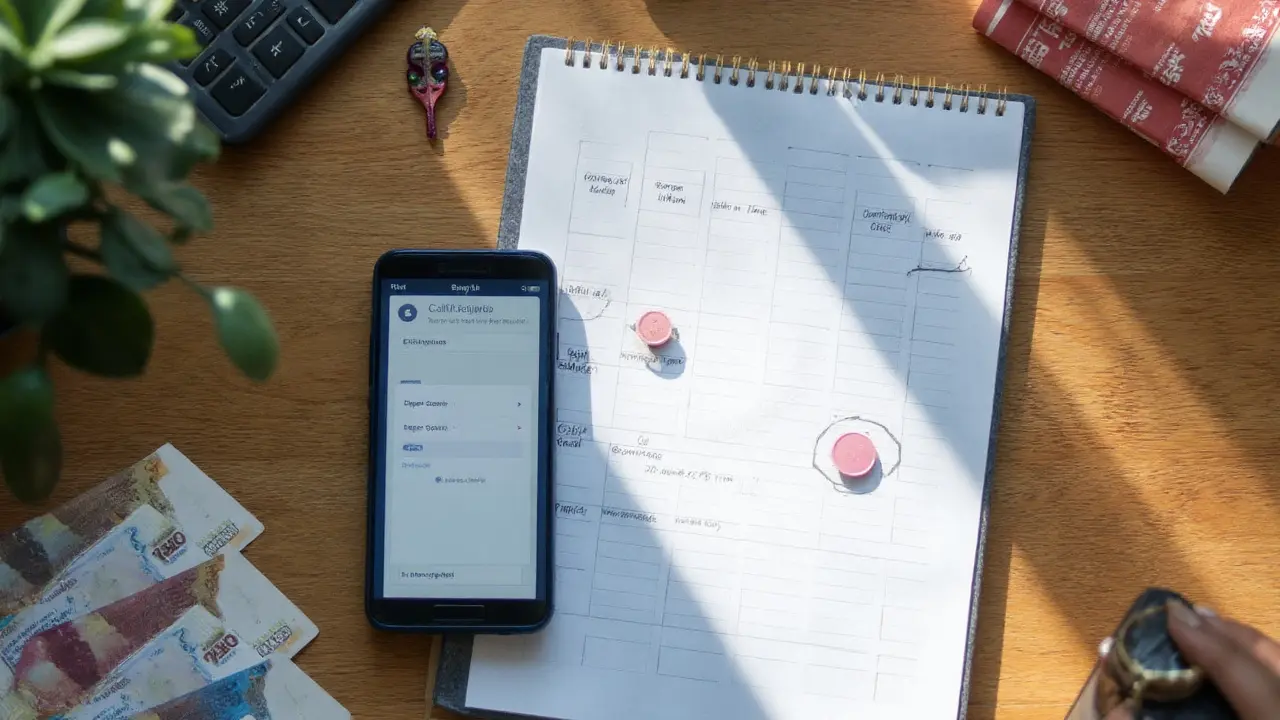You don’t book regularly because you’re bored. You book because you want control, privacy, and a calm, predictable experience that actually lowers your stress instead of adding to it. If you’re weighing the idea of becoming a regular for incall bookings in the UK, here’s what people actually value: predictable logistics, clear boundaries, safer setups, and better chemistry over time. This guide lays out the benefits, real‑world costs, the safety and legal side, and how to do it ethically and discreetly.
Why Regular Incall Bookings Appeal
Incall means you visit the provider’s chosen location-usually a private flat or licensed premises-rather than having them travel to you. That one detail changes a lot. With incall, logistics are simpler: no guessing about hotel check-ins, no worrying about reception staff, and no one learning your home address. For many people, that single shift brings down anxiety and keeps things tidy.
Privacy and discretion. Incall keeps your personal space out of the picture. You arrive, you leave, and there’s no paper trail to your front door. Buildings with secure entry add a layer of safety for both of you. In my city, Bristol, most professional incalls are in central spots near dependable transport-all very normal-looking comings and goings.
Predictability. Seeing the same person in the same setting makes everything smoother. You learn the routine: how to enter the building, where to wait, the tone of the first minute. That routine lowers the pressure. People underestimate how much environmental consistency helps. A steady venue and a steady person mean fewer surprises and more time enjoying the actual connection.
Better boundaries, less emotional mess. Regulars often find the professional frame gets clearer with repetition. You both know the rules around time, consent, and aftercare. Clarity reduces awkwardness and misread signals. If you’ve ever felt post-meet whiplash, consistent boundaries help you leave calm instead of frazzled.
Safety upside. Incall providers usually control their environment. They have their screening, their safety plan, their neighborly rhythms. That control is good for you too. Doors, lighting, and exits are known, and you aren’t inviting anyone to your home. If anything feels off, it’s easier to pause, ask questions, or reschedule. When both people feel safe, the whole experience improves.
Real rapport. The first time is always a bit stiff. By the second or third booking, the social friction fades. You don’t need to over-explain what you like (and what you don’t). You can also share practical preferences-music, pace, breaks-without it feeling awkward. That rapport pays off in small ways that add up to a bigger feeling of care.
Less admin. Outcall often involves far more texting: postcodes, parking, lifts, reception workarounds, key cards. Incall keeps it tighter. That’s a relief if you’re busy or not a natural scheduler.
One more point people rarely say out loud: you get to be a decent, steady client. That reputation matters. Professionals value respectful regulars. It can mean easier scheduling, more accommodating timing, and sometimes loyalty pricing. Reliability goes both ways.
Pricing, Terms, and What “Regular” Actually Costs
Rates vary across the UK and depend on experience, location, and duration. As of 2025, a broad, realistic range for incall in many UK cities looks like this: 30 minutes can start around £80-£150; an hour often sits between £120-£250; established independents in London can be £200-£400+ per hour. That’s not a quote-it’s a ballpark. You always follow the rate on the provider’s page. No haggling. It’s work, not a car boot sale.
What changes if you’re a regular? Sometimes nothing; sometimes you see small perks over time-priority slots, heads-up on diary changes, an occasional upgrade or longer booking with a modest adjustment. Some providers offer packages or “preferred regular” terms, like a recurring monthly slot. The key is to ask respectfully after a few good experiences: “I enjoy seeing you and was thinking monthly-does that make scheduling easier for you?” And accept the answer.
Deposits are normal. Expect 10-50% depending on the person, their policies, and how busy that city is that week. Deposits protect time on both sides. Don’t argue them; they’re a sign of professionalism. If you prefer not to leave one, say so early and accept that it may limit your options.
Cancellation windows. 24-48 hours is common. Short-notice cancellations usually forfeit deposits; same-day cancellations might require a higher fee or full rate depending on policy. Read the terms. Bookmark them. Following them is part of being a good regular.
Payment methods. Follow the provider’s preferred method exactly-cash in envelope, bank transfer, platform wallet, or card where available. Don’t push for alternatives. Never suggest anything that smells like money laundering or tax dodging. Keep it clean. Clear, legal payments are part of mutual respect.
Budgeting if you go regular. A simple rule of thumb: only use truly discretionary money. A quick sanity check formula a lot of people use: if your monthly take-home is £X, keep “fun spend” for everything (meals out, hobbies, dates) at or under 10-15% of X. From that slice, pre-allocate a recurring slot if you want one. That way you’re never stretching rent or savings to make space for this. Financial stress kills the calm you’re paying for.
How often counts as “regular”? Monthly is common. Fortnightly works for some. Weekly is a big commitment-time and money. If you’re new, try a rhythm you can keep for three months without strain. Consistency beats intensity.
Receipts and records. Many independent providers won’t issue invoices for obvious privacy reasons, but if you need records for your own budgeting, keep a private, secure note of dates and amounts-no names, no addresses. Respect your own privacy the way you respect theirs.

Risks, Ethics, and How to Stay Safe
You’re an adult; so is the person you’re booking. Keep it that way. No one under 18. Ever. Verify you’re dealing with a consenting adult professional. If anything feels off-coercion, control by a third party, pressure for unsafe practices-stop. Report concerns to the platform you used or, if you think someone’s in danger, to Crimestoppers or the police.
Legal context in England and Wales. Paying for consensual adult sexual services is not a crime; related activities can be. Street solicitation, brothel keeping (two or more people working together at the same premises can attract that charge), controlling for gain, and certain types of advertising can cross legal lines. Independent incall from a private residence can be lawful when one person works alone. Laws differ in Scotland and Northern Ireland. If you’re unsure, read current Crown Prosecution Service and Home Office guidance before you make a habit of this. Laws do change.
Sexual health. Use protection every time. Bring your own supplies as a courtesy, and follow the provider’s rules. The NHS recommends regular STI screening for sexually active people; if you’re seeing someone more than once, a 3-6 month testing rhythm is sensible. No surprises, no pressure for uncovered anything. A professional will have clear boundaries here; good clients respect them.
Screening and privacy. Many professionals screen new clients for safety-work email, a small deposit, a reference from a known provider, or a quick video verification. Don’t send sensitive ID scans unless asked through their stated method. Red flag: anyone asking for excessive data without a clear rationale. Another red flag: demands to deviate from their own written policy to something odd. You’re vetting each other; that’s normal.
Mental and emotional boundaries. Regular bookings can feel friendly. That’s part of the appeal. But keep the frame. Don’t probe into personal life; don’t try to blur lines with gifts that make the relationship lopsided. If you start to feel attached in a way that hurts, step back and take a break. If you’re in a committed relationship, think hard about the ethics. Secrets have a way of boiling over. Therapy or honest conversation beats risky double lives.
Red flags to walk away from:
- Inconsistent location stories or last-minute address changes that don’t add up.
- Pressure for unsafe practices or extra cash to ignore stated boundaries.
- Photos that clearly aren’t real, aggressive upselling, or a third party texting from multiple numbers.
- Violations of timing or deposit terms that make you feel cornered.
If you feel unsafe, leave. You don’t owe an explanation beyond a polite “I’m going to head out.” Your safety beats sunk costs.
Incall vs Outcall vs Online Companionship
Is incall actually better for you, or just different? Here’s the quick comparison many regulars use when they pick a format.
| Option | Privacy | Convenience | Cost | Safety | Best for |
|---|---|---|---|---|---|
| Incall | Your home stays private | Usually central, predictable | Often cheaper than outcall | Provider controls environment | People who value discretion and routine |
| Outcall | At your address/hotel | Zero travel for you | Often higher due to travel/time | More variables at your place | Those with mobility/time constraints |
| Online/virtual | Digital-only presence | Instant scheduling | Lower, varied | Different risks (privacy/data) | Connection without in-person meets |
Incall vs outcall isn’t about “better,” it’s about control. Incall often wins on discretion, safety logistics, and cost. Outcall wins on “I don’t want to leave the house” or “I’m in a hotel and this is simple.” If you’re going regular, incall tends to be the smoother rhythm because the environment stays constant.
What about social-only dates? Some people prefer dinner/drinks without heading back to an incall venue. It’s a different vibe-slower pace, public setting, and a different kind of boundary. If your main goal is low-stress, private time with minimal admin, incall still ticks the most boxes.

How to Book Responsibly and Keep It Discreet
Here’s the practical, ethical path most experienced regulars follow. Use it as a template and tweak to your situation.
- Check your local law first. If you’re in England or Wales, read up on current CPS/Home Office guidance. If you travel, laws vary by country and change often.
- Choose verified spaces. Use well-known platforms or independent websites with clear policies, up-to-date photos, and consistent rates/terms. Read recent reviews for tone and professionalism.
- Shortlist 1-2 people. You’re looking for steady availability, clear boundaries, and communication that feels respectful. If their page answers your questions, that’s a good sign.
- Make first contact respectfully. Keep it simple: name, date/time window, length, and any screening the person requests. Avoid explicit talk. Don’t negotiate rates. Ask for their preferred deposit method.
- Confirm the booking. When you receive the confirmation and terms, read them. Pay the deposit. Expect the exact address close to the time, not days ahead-that’s normal for safety and discretion.
- Arrive prepared. Be clean, on time, and quiet in common areas. Bring what’s needed: agreed balance, ID if requested by their policy, and your phone on silent. No filming, no surprises.
- During the meet, communicate. Check in with simple, clear questions: “Is this pace okay?” Boundaries are healthy. If you’re unsure, ask.
- Wrap up well. Don’t linger. A short, sincere thank-you goes a long way. If you want to become a regular, say so and offer a realistic cadence: “I’d love to book the first Thursday each month-does that help your diary?”
Discretion tips that don’t cross ethical lines:
- Use a neutral email or messaging handle, not your work account.
- Turn off notification previews on your lock screen. Privacy belongs to both of you.
- If you’re in a relationship, think seriously about consent and honesty. Don’t drag someone else into a secret that could harm them.
- Don’t hang around the building, talk to neighbors, or make staff uncomfortable. In and out, quietly.
Safety and consent checklist you can literally screenshot:
- Only book consenting adults (18+).
- Follow the posted rules: rates, deposit, cancellation, and boundaries.
- Use protection and get regular STI screens (NHS clinics are quick and discreet).
- Trust your gut-if something feels off, leave and regroup.
- Never pressure for services not offered. No means no, full stop.
incall escorts
Mini‑FAQ
- Do regulars get better experiences? Often, yes. Familiarity builds trust, which makes communication easier. You both know the routine, so there’s more ease and less awkward admin.
- Is incall safer than outcall? “Safer” depends on the setup. Incall tends to be more controlled for the provider, which usually benefits you too. Outcall adds variables at your place or hotel. Both can be safe if you follow good practices.
- Can I negotiate rates as a regular? Don’t. You can ask about recurring bookings or preferred times. If a provider offers loyalty perks, great. If not, you still get predictability and priority by being respectful and reliable.
- What if the building has a concierge? Keep it simple and normal. If asked, say you’re meeting a friend or visiting a flat. Don’t overshare or make it awkward. Follow the provider’s directions exactly.
- Do I bring protection? Yes-bring your own, and use it unless the provider’s posted policy says otherwise (many won’t deviate). NHS guidance supports regular screening for sexually active people; aim for 3-6 months if you’re a regular client.
- Is any of this illegal in the UK? Paying for consensual adult services isn’t a crime in England and Wales, but some related activities are. Read current CPS/Home Office guidance and don’t book anything that looks like brothel activity or coercion.
Next steps
- Decide your cadence: monthly or every other month is a calm starting point.
- Set a clear, affordable budget and stick to it for three months.
- Shortlist one provider whose diary fits yours. Make the first booking, follow their rules, and see how you feel afterward.
- Book your STI test today if you haven’t had one in the last 3-6 months.
Troubleshooting
- Last‑minute cancellation. It happens. Accept the policy, reschedule, and don’t vent. Reliability pays off over time.
- Address changes an hour before. Ask why. Reasonable explanations: maintenance, neighbor issues, short-notice slot switch. If it doesn’t feel right, bow out and rebook later.
- You feel anxious at the door. Text a brief note: “Running five minutes late.” Breathe. If it still feels wrong, don’t go in. You’re allowed to protect yourself.
- Suspect exploitation. Don’t proceed. Flag the listing on the platform. If someone’s in immediate danger, contact the police or Crimestoppers.
If you take one thing away, let it be this: regular incall bookings work best when both people feel safe and respected. Keep your side clean-legal, calm, and kind-and you’ll get exactly what you came for: private, predictable time that makes life simpler, not messier.




